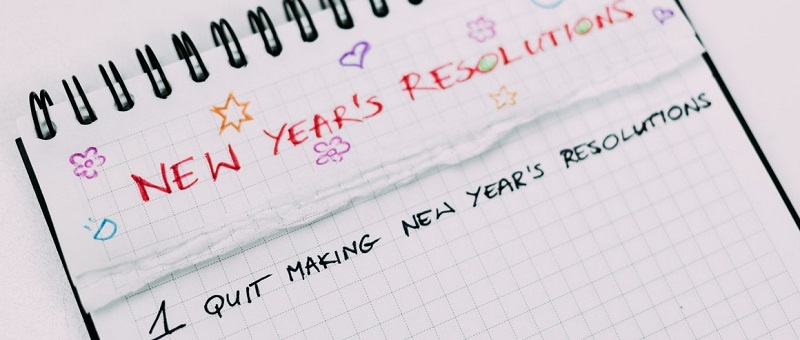Take a moment and ask yourself, how are you feeling?
What emotional state are you in right now? Are you content? Bored? Excited? Rushed?
If you’re like me, this is a hard question to answer. Most of us spend most of our time without being consciously aware of our own emotions.
Why is this? I’m not sure—that’s a topic for another post. Today I’d like to suggest how we can become mindful of our emotions, and why we should.
What Is Emotional Mindfulness?
I love this definition of mindfulness by Merriam-Webster:
the practice of maintaining a nonjudgmental state of heightened or complete awareness of one’s thoughts, emotions, or experiences on a moment-to-moment basis
Emotional mindfulness, then, is being aware, on a moment-to-moment basis, of our emotions and feelings. Important here is the word nonjudgmental—we are not out to condemn ourselves for the emotions we’re feeling, nor congratulate ourselves. We are to observe, and then eventually, to master.
Why Do We Need Emotional Mindfulness?
Emotions are a central part of who we are. Emotions, which are fueled by our thoughts and desires, work alongside our habits to determine our actions. Thus, as we become more aware of our emotions, we become more conscious of how those emotions are influencing our decisions and actions.
Part of self-mastery is mastery over our emotions. But before we can control our emotions, we must be aware of our emotions. We must understand our personal emotional patterns, our emotional responses to different situations, and how those emotions then influence our actions. Only once we attain self-understanding can we achieve self-control.
The Emotion Log Experiment
How do we achieve emotional mindfulness? This week I tried an experiment. I got a blank piece of paper, divided it into three columns, and labeled them “Time,” “I feel,” and “Because.” I then carried the paper with me throughout the day (which thankfully is quite easy when working from home during a pandemic). Every half hour or so, I would pause what I was doing and ask, “What am I feeling? What is my emotional state?” And I would write that down in the “I feel” column. Then I would ask, “Why? What led me to feel this way?” And I would write that down in the “Because” column.
The results were interesting. Sometimes, I knew immediately what emotion I was feeling, especially with stronger negative emotions like feeling distracted, anxious, or upset. But most of the time, I didn’t know. In fact, I wasn’t sure I was feeling any emotion. I didn’t exactly feel happy. Did I feel . . . contented? Focused? Unfocused? Meh? The exercise taught me that in the regular happenings of my day, unless there is a stimulus triggering a strong positive or negative emotion, my emotional state becomes somewhat subdued. My emotions become like computer programs running in the background, still influencing things but barely noticeable. This realization made me want to change my “default” to a higher positive emotional state.
Also interesting for me was analyzing why I felt certain emotions. One morning, I felt annoyed and a little cranky. Why? I decided it was because I had stayed up late the night before and so woke up tired: I was annoyed at myself. Sometimes I felt excited because I was planning something in the future. Or I felt invigorated because of an uplifting book I had been reading. Very often, I felt distracted or unfocused because of things I had read earlier in the day (the news, email, etc.) that my mind was still trying to work through. These insights taught me ways to seek out or avoid certain emotions by changing my circumstances.
After Emotional Mindfulness: Emotional Self-Control
Once we understand our emotions, we can then take responsibility for our emotions. This means accepting that our emotions are entirely of our own making and acknowledging how our emotions affect our words and deeds. As we take responsibility, we begin to anticipate how certain situations or triggers (positive or negative) will attempt to impact our emotional state.
Once we take responsibility for our emotions, we can control our emotions. This is one of the grand secrets of the principle of agency. We don’t just have agency over our actions or words: we have agency over the way we feel, every waking moment of our lives.
Emotional self-control is one of the most empowering traits we can develop. We don’t need to become frustrated when we’re stuck in traffic. We don’t need to be offended when someone says something insensitive. We don’t need to feel bored, cranky, stressed, angry, or meh because of our circumstances. As “agents unto [our]selves” (D&C 58:28), we can choose to leave behind these negative emotions. In their place, we can fill our lives with positive emotions, and particularly with the two most powerful: love and gratitude.
God Wants Us to Be Emotionally Mindful
I am convinced that God wants us to be emotionally mindful. He wants us to have total mastery over ourselves, including our emotions.
King Benjamin warned his people, “If ye do not watch yourselves, and your thoughts, and your words, and your deeds . . . ye must perish” (Mosiah 4:40). Our thoughts and our emotions are intrinsically connected.
Alma counseled his son Corianton, “See that ye bridle all your passions” (Alma 38:12). To bridle our passions, we must first recognize and understand them.
The author of Proverbs wrote, “He that hath no rule over his own spirit is like a city that is broken down, and without walls” (Proverbs 25:28). A city without walls is defenseless, open to any invader or infiltrator at any time. So we, if we are not aware of our emotions and thoughts, are open to any attack of Satan. He can lull us into a situation where we get bored (or tired or upset or angry), and then he plays on our emotions to hit us with whatever temptation he pleases. And if we fail to even recognize what emotion we’re feeling, how will we recognize and resist the temptations when they come?
In addition to helping us resist temptation, emotional mindfulness helps us recognize revelation. President Dallin H. Oaks has written, “Feelings are vital to the process of revelation. We should always be prepared to act upon an impression when we ‘feel that it is right’ (D&C 9:8).” He added, “If we cultivate the sensitive spiritual receptor all have been given and are expected to use, a feeling of doubt or foreboding will warn us away from ethical or moral pitfalls. If we stray from the prescribed path, a feeling of guilt will move us to repentance.” In other words, being aware of what we’re feeling is an intrinsic part of recognizing when the Spirit is trying to communicate to us. (Dallin H. Oaks, Life’s Lessons Learned [Salt Lake City: Deseret Book, 2011], 75, 77.)
48-Hour Emotion Log Challenge
I invite you to increase your emotional mindfulness. If you have the bandwidth, I encourage you to keep an Emotion Log for a 48-hour period (you can even print out a PDF form I prepared). Even if you don’t use a physical log, I encourage you to regularly pause and take an inventory on your emotional state. Excellent times to do a mental inventory are when your mind is unengaged from other things—like when you’re driving, or getting dressed, or eating food.
As you take inventory of your emotional state, you will come to understand more about yourself. You will become more aware of the emotions that you gravitate towards. You will gain a better understanding of the events or circumstances that most affect your emotions.
One of my favorite quotes is from the writer and personal-empowerment expert Leslie Householder. She begins each of her RareFaith podcasts with the phrase, “The same activity with just a little more awareness always yields better results.”
I challenge you to increase your emotional mindfulness. Come to understand yourself, your feelings, and your emotions. This “greater awareness” will then allow you to take greater responsibility and self-control over yourself and achieve “better results” in your life.
Summary
Emotional mindfulness means being aware of our own emotional state throughout the day. With practice, by pausing periodically to ask ourselves what we’re feeling, we can develop greater emotional self-awareness. Emotional mindfulness is a prerequisite to taking responsibility for our emotions, which itself is a prerequisite for developing full emotional self-control. Emotional mindfulness also helps us resist the attacks of the adversary and become more attuned to messages from the Spirit.
Points to Ponder
- What emotions do I feel often? Do I want to feel these emotions?
- Are there emotions I wish I didn’t feel? What can I do to control them?
- What are some emotional triggers (positive or negative) in my life?
Further Reading
- Marissa Widdison, “The Power of Quiet Moments,” Ensign (online only article), December 2020.



Comment by Audrey Jolly on the original post in atriumoflight.com:
I love your quote from Leslie Householder. Of of the most important lessons I’ve learned from her, relating to emotions, is that any thought that is repeated often or charged with emotion becomes a program that runs our subconscious mind. Thus, I see one of the powers of emotional mindfulness as the ability to program (or re-program) our subconscious, which can help us become unlimited.
Comment by Laura Madsen on the original post in atriumoflight.com:
I like your comments about our ability to act and control our emotions. I had a life-changing experience a few years ago when I was teaching a group of Primary children about 2 Nephi 2:27, “Wherefore, men are free … to choose liberty and eternal life, through the great Mediator of all men, or to choose captivity and death, according to the captivity and power of the devil.”
The Spirit spoke very powerfully to me and impressed upon my mind how true this scripture was. At the time, I was struggling to overcome strong emotions of fear, and this knowledge that I really could CHOOSE my emotions was empowering.
I have spent many years working to free myself of negative emotions from my past. I have learned that the easiest way to freedom is to recognize my negative emotions (become aware) and then command the emotions to leave me (choose to act). Then I can choose positive emotions to take their place, and I can call them into being.
I am like a grand computer, where I am the master programmer. If I don’t like the program I am running on, I have the power to hit the delete button. If I want a different, more positive program, I have the power to create it. It really is as simple as KNOWING without a doubt that I have the power to act, and then DOING it!